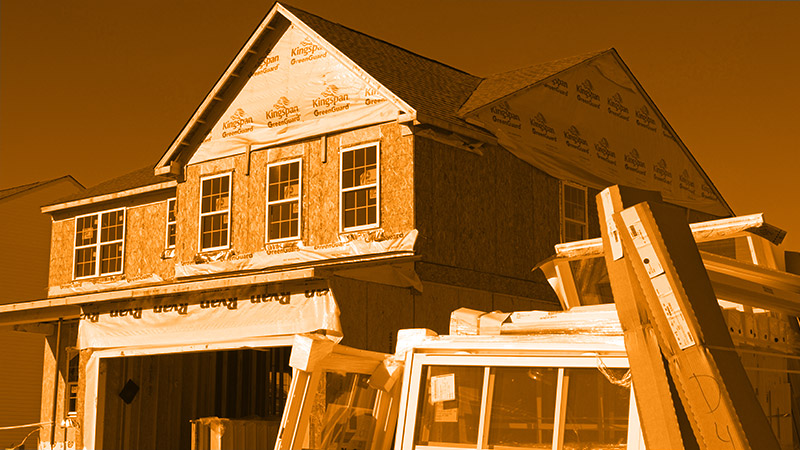Let’s talk about mortgage terms in the UK. In the not-too-distant past, homeowners would take our mortgages UK over 25-year terms.
Nowadays, a 25-year mortgage term doesn’t seem realistic, especially with the high cost of living crisis and property prices.
More and more home buyers are applying for mortgages over 30 to 35 years.
One in four new mortgages in the UK run over 25 years.
The reason for such extended loan periods is that buyers want to get onto the property ladder sooner while reducing their expected monthly instalments and being able to afford more costly properties than they would on a shorter loan term.
There’s no doubt that extending the term of your UK mortgage can be beneficial, but it also comes at a cost.
This guide looks at the ins and outs of extending a UK mortgage and what to expect should you choose.
Chatting with a professional mortgage advisor is your best chance of making the right decision.
The Draw for Extended UK Mortgage Terms
There are benefits to extending your mortgage in the UK.
For instance, a longer mortgage repayment term will reduce your monthly instalments because you have 10 extra years to pay off the capital.
The lower payments will also ensure you qualify more easily with a lender offering mortgages, as the monthly repayments will be more affordable.
Pros and Cons of Extending Your UK Mortgage
One of the biggest demographic to benefit from the option to extend a mortgage is undoubtedly younger property investors who want to ensure that they pass the affordability assessment involved when applying for a mortgage.
Let’s consider a £200,000 mortgage over 35 years with a 3% interest rate.
Such a mortgage would come with interest rate payments each month of £178.
Now, consider the older way of doing things, where mortgages were paid over 25 years.
In such a scenario, the borrower would face an interest rate payment of £948 monthly!
The difference is remarkable.
This probably looks inviting, and it is! But there’s a flip side: the overall cost of the interest amount you’ll pay back on loan.
Using the example above as a reference, a 25-year mortgage would incur interest of £84,478, whereas a 30-year mortgage presents a whopping £103,495, which isn’t quite as inviting?
What’s the Solution to Avoid Additional Fees?
Many borrowers have found a way around incurring the additional fees.
This is done by starting with a mortgage with a longer loan term.
This will help to keep the initial costs down.
Then, when you have additional money, you can slash your term or overpay on your instalments.
Of course, this will not mean your mortgage extension is free, but you will pay less in fees/interest.
Age is Important to Consider When Extending Your Mortgage
Extending your mortgage is an option if you’re young. Unfortunately, many mortgage providers hesitate to provide funding to those over 65.
Most lenders only allow borrowers to extend a loan until their 80th birthday. If your loan repayments extend beyond that, you won’t be eligible for the extension.
That said, smaller building societies and some lenders are considering more leniency and may even allow repayments up to the age of 90.
A More In-Depth Look at the Pros and Cons of a 20-Year Mortgage and 30-Year Mortgage
Let’s dig a little deeper into the pros and cons.
Pros and Cons of a 30-Year Mortgage
Pros:
- Lower instalments impose less pressure on your monthly budget
- You can purchase more expensive property with a larger loan. And with the money you have left over each month, you can repair and maintain the home.
Cons:
- A 30-year mortgage will take the majority of your life to pay off. If you get a 30-year mortgage at 30 years old, you will be 60-65 years old by the time you pay off the property.
- You will pay a higher interest rate and pay interest over a longer term which means that a 30-year loan is far more expensive even if the monthly instalments appear lower.
Pros and Cons of a 20-Year Mortgage
- You can pay off your mortgage quicker and will have more time to save for retirement or spend on investments. For example, if you take out a 20-year mortgage in your 30s, you’ll be paid up by the time your 50s come around.
- A shorter loan term means you can build equity faster. Equity is the portion of the mortgage that is paid out, meaning it’s the portion of the home you’re now the owner of. An individual’s net worth is calculated with equity. During the term of your loan, you can loan against your home equity, but keep in mind that this is a risky business as the home will serve as security for the loan.
Cons:
- You’ll pay fairly high monthly instalments, resulting in less available cash flow for everyday living. So you’ll have to budget carefully.
Which Loan Term is Ideal?
Now, with pros and cons in mind, you’re probably wondering if you should go for a standard 20-year mortgage or extend your mortgage UK loan term to 30 – 35 years.
Financially speaking, the 20-year mortgage option seems stronger as it will save you money in the long term and also allow you extra time to save for retirement and invest.
That said, if you’re on a strict budget and the 20-year mortgage isn’t a viable option, the 30-year mortgage may be ideal for you.
Can I Extend the Term of My Mortgage in the UK? Conclusion
If you’re considering extending your loan term or want to know which loan term is best suited to your current financial situation, speaking with a professional mortgage advisor could help to provide some clarity and help you make an informed and confident decision.
Call us today on 01925 906 210 or contact us. One of our advisors can talk through all of your options with you.
















